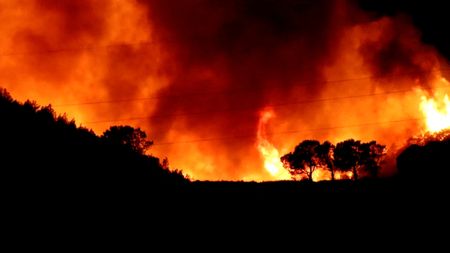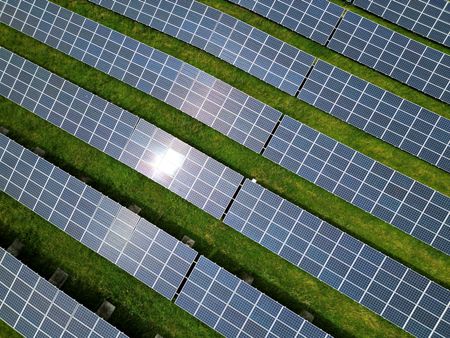By Virginia Furness
LONDON (Reuters) -Extreme weather events such as heatwaves, flooding and wildfires could wipe as much off euro zone GDP in the next five years as the global financial crisis or the COVID-19 pandemic, a senior European Central Bank official said on Wednesday.
A series of severe weather-related events could cause an almost 5% near-term drop in euro zone growth, based on the most extreme climate scenario devised by a group of over 140 bank supervisors and regulators earlier this year, according to Livio Stracca, deputy director general at the ECB.
“The peak negative effect on euro area GDP is almost 5%, which is the same order of magnitude as what we have seen in the global financial crisis and a little bit less than COVID-19,” said Stracca, who also chairs the Network for Greening the Financial System’s workstream on scenario design and analysis.
The findings are based on a new set of tools designed by the NGFS, a group of central bankers and supervisors working to address climate-risk in the financial sector and economy.
The tools aim to help banks and companies understand how climate change may impact their businesses in the short term by testing out a series of climate-related scenarios.
The group found euro zone growth was most severely impacted in a scenario known as “Disasters and Policy Stagnation” where heatwaves, droughts and wildfires in 2026 were followed by a combination of floods and storms in 2027.
Should the euro zone follow through with its net-zero transition policies, including its plan for a 55% reduction in greenhouse gas emissions by 2030, it could largely mitigate losses, another scenario found.
“Climate-related risks are an immediate concern for financial stability and economic growth,” Stracca and Bundesbank board member Sabine Mauderer said in a blog published by the ECB on Wednesday.
“The NGFS scenarios … indicate that a globally coordinated net-zero effort would safeguard the euro area’s economic interests over the next five years.”
The NGFS has already released a widely used set of climate scenarios, but this is the first time they have offered tools to assess the short-term and physical impacts.
(Reporting by Virginia FurnessEditing by Mark Potter)








